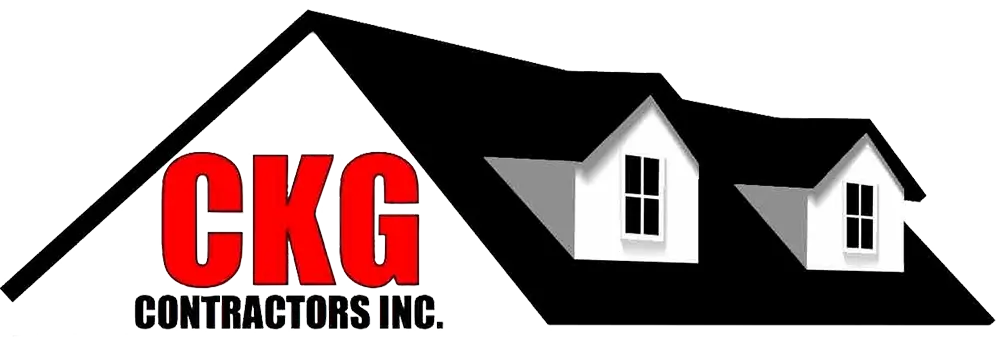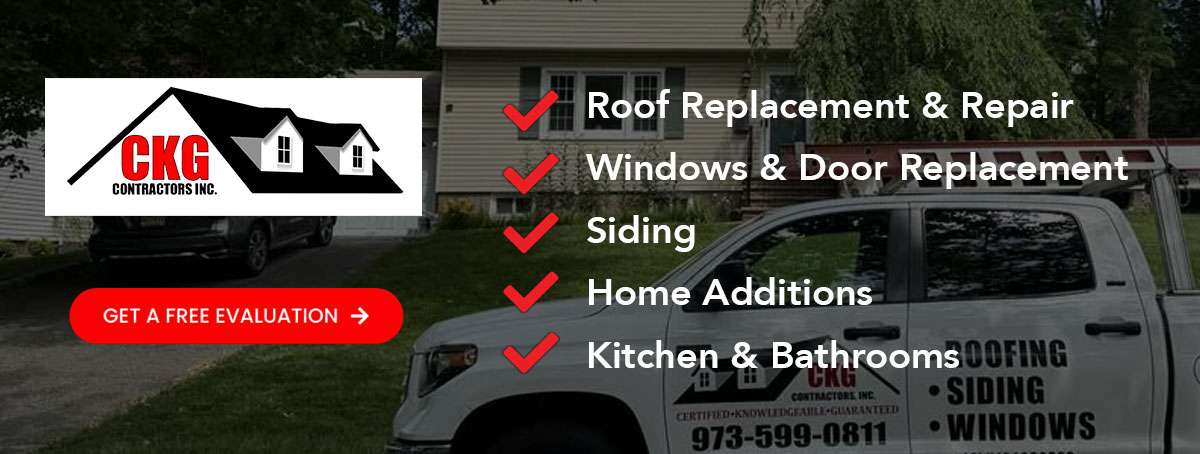Table Of Contents:
- How to Choose the Right Commercial Roofing Contractor for Flat Roof Repairs
- Introduction
- What Qualifications Should a Commercial Roofing Contractor Have?
- How Can You Find and Evaluate Commercial Roofing Contractor Reviews?
- What Key Questions Should You Ask Before Hiring a Roofing Contractor?
- What Are the Best Practices for Flat Roof Maintenance and Repair?
- Why Is Reliability and Customer Service Crucial When Choosing a Roofing Contractor?
- How to Compare Estimates and Select the Best Commercial Roofing Contractor?
- What Are the Steps to Finalize Hiring and Starting Your Flat Roof Repair Project?
- Frequently Asked Questions
How to Choose the Right Commercial Roofing Contractor for Flat Roof Repairs
Introduction
Selecting a commercial roofing contractor for flat roof repairs, which often entails storm damage repair, is crucial for maintaining your business’s operations and protecting your investment. Flat roofs have unique challenges such as drainage issues, exposure to weather extremes, and the potential for energy inefficiencies if not properly maintained or repaired. This article outlines the qualifications and certifications a contractor should have, how to evaluate reviews, the key questions to ask, best practices for maintenance, the importance of reliability and customer service, how to compare estimates, and the steps to finalize hiring a contractor. By following this guidance, business owners can confidently choose a contractor who meets necessary standards for storm damage repair and delivers durable repairs.
What Qualifications Should a Commercial Roofing Contractor Have?
When choosing a contractor for flat roof repairs, consider their certifications, licenses, experience, and project management skills. A reliable contractor: • Possesses relevant certifications such as OSHA training and manufacturer-specific training (e.g., TPO, EPDM, modified bitumen) • Holds state or local licenses that validate their competency • Provides evidence of continuing education and participation in industry conferences • Demonstrates robust project management by coordinating suppliers, crews, and repair schedules • Follows safety standards and uses proper fall prevention equipment • Has industry affiliations (e.g., NRCA) that enhance credibility
These qualifications reduce the risk of substandard workmanship and ensure the contractor can deliver repairs that meet regulatory and business requirements.

Which Certifications and Licenses Are Essential for Flat Roof Repairs?
Essential licenses and certifications include: • A general contractor’s license and local roofing licenses • Manufacturer certifications for roofing systems like TPO, EPDM, and modified bitumen • OSHA training credentials and, when available, certification programs such as GAF Master Elite • Bonds or additional insurance as required by local regulations
These credentials confirm that the contractor is trained, legally permitted, and committed to high industry standards.
How Does Experience Impact Flat Roof Repair Quality?
Experience is key for successful flat roof repairs. Contractors with many years in the field: • Understand the nuances of different roofing systems and the challenges of water ponding, thermal movement, or adhesion issues • Offer detailed case studies, before-and-after comparisons, and strong client testimonials • Maintain streamlined workflows and strong supplier relationships, resulting in efficient repairs and comprehensive warranties
A contractor’s proven history serves as assurance of quality work and lasting repair solutions.
Why Are Insurance and Warranties Important When Hiring a Roofing Contractor?
Insurance and warranties provide mutual protection. Insurance (general liability, workers’ compensation, and property insurance) ensures that neither party bears undue financial risk during repairs. Meanwhile, comprehensive warranties covering workmanship and materials: • Demonstrate the contractor’s confidence in their repair quality • Offer a safety net if issues such as leaks or material failures occur • Enhance the contractor’s credibility during the bidding process
Always request proof of insurance and detailed warranty documentation before finalizing any contract.
How Can You Find and Evaluate Commercial Roofing Contractor Reviews?
Online reviews and testimonials offer valuable insight into a contractor’s reliability and work quality. To evaluate reviews: • Search reputable platforms such as the Better Business Bureau (BBB), Google My Business, and Yelp • Look for detailed accounts that mention project specifics, timelines, and technical aspects • Verify consistency across multiple sources and compare reviews with similar businesses’ experiences • Watch for red flags such as repeated complaints about delays, poor communication, or hidden costs
By gathering reviews from several sources and cross-referencing feedback, you can form a balanced picture of the contractor’s performance.
Where to Look for Reliable Commercial Roofing Contractor Reviews?
Reliable reviews are found on: • The BBB, which rates companies based on complaint resolution and customer satisfaction • Google My Business and Yelp, which offer narratives and star ratings • Industry-specific forums and roofing contractor directories • Social media groups on LinkedIn and Facebook, where real user experiences are discussed
Creating a comparison table of ratings and common feedback can help quickly gauge a contractor’s reputation.
What Red Flags Should You Watch for in Roofing Contractor Feedback?
Be cautious if reviews mention: • Repeated missed deadlines or poor communication • Consistent issues with water leakage, subpar repair methods, or hidden costs • A lack of responsiveness to negative feedback • Overly generic or suspiciously positive reviews
Such red flags may indicate underlying problems with workmanship or management, and warrant further investigation.
How to Verify the Authenticity of Online Roofing Contractor Reviews?
To verify reviews: • Check reviews on multiple reputable platforms (BBB, Google, Yelp) • Look for time stamps, detailed experiences, and photos • Contact past clients if possible for direct feedback • Compare review themes across different sources
This multi-layered approach helps ensure that the reviews represent genuine customer experiences.
What Key Questions Should You Ask Before Hiring a Roofing Contractor?
Before hiring a contractor, ask questions that cover technical expertise, project management, pricing, materials, and timeline. Examples include: • “Can you share examples of previous flat roof repairs and which materials you used?” • “How do you address common issues like water ponding and adhesion failures?” • “What is your project management process and how do you communicate updates?” • “Can you break down the costs in a comprehensive estimate?” • “What warranty and insurance coverage do you offer?”
These questions help clarify the contractor’s methods, reliability, and transparency, ensuring you make an informed decision.

Which Questions Reveal a Contractor’s Expertise in Flat Roof Systems?
Focus on questions that delve into technical details, such as: • “What specific challenges have you encountered with TPO or EPDM roofing systems?” • “How do you manage thermal movement or water ponding issues?” • “Can you provide case studies that highlight your innovative repair methods?” • “What certifications or specialized training do you have regarding flat roof systems?”
Such inquiries reveal the contractor’s depth of knowledge and ability to design tailored solutions.
How to Assess a Contractor’s Project Management and Communication Skills?
Assess the contractor by asking: • “How is your project managed from start to finish, and what tools do you use for updates?” • “Will I have a dedicated project manager, and how frequently will I receive progress reports?” • “How do you handle unexpected delays or issues during a project?” • “Can you provide references from previous clients regarding your communication and overall management?”
These questions help determine if the contractor can keep the project on schedule and ensure a smooth repair process.
What Should You Ask About Pricing, Materials, and Project Timeline?
Make sure to obtain detailed information on: • A full itemized estimate covering labor, materials, disposal fees, and contingencies • Recommendations regarding material brands and types, along with their durability and warranties • The proposed project timeline including key milestones and the contingency plan for delays • Any options for financing or bulk project discounts, if applicable
Clear answers in these areas confirm transparency and help you weigh cost against quality effectively.
What Are the Best Practices for Flat Roof Maintenance and Repair?
Routine maintenance is essential to prolong the life of a flat roof. Best practices include: • Scheduling regular inspections (at least twice a year and after severe weather events) to detect early signs of membrane wear, pooling, or blistering • Keeping the roof free of debris, leaves, and dirt to ensure proper drainage • Cleaning gutters and downspouts regularly to maintain unobstructed water flow • Choosing appropriate repair materials that match the existing system and are suited for local weather conditions • Applying high-quality sealants and protective coatings periodically to maintain waterproofing • Considering the use of infrared thermography to detect hidden moisture issues
These measures help prevent minor issues from escalating into major repairs and protect your investment over the long term.
How Does Regular Maintenance Extend the Life of a Flat Roof?
Regular maintenance minimizes small issues that could eventually lead to costly repairs. By: • Promptly addressing minor cracks or sealant issues • Cleaning and inspecting the roof on a regular schedule • Monitoring drainage and adjusting maintenance practices as needed property owners can prevent extensive damage and prolong the roof’s structural integrity, reducing both repair frequency and overall maintenance costs.
What Common Flat Roof Problems Require Professional Repair?
Flat roofs are prone to several problems that require expert attention: • Water ponding due to insufficient drainage • Cracks or blisters in the roofing membrane caused by installation errors or weather-related stress • Seam failures that compromise the waterproof layer • Sagging areas from prolonged water infiltration or poor insulation Professional repairs address these issues effectively and help prevent further damage that could disrupt business operations.
How to Choose Materials That Suit Your Commercial Flat Roof?
Select roof repair materials by considering: • The properties of materials like TPO, EPDM, modified bitumen, and built-up roofing (BUR) in terms of energy efficiency, durability, and waterproofing • Compatibility with your existing roofing system and local environmental conditions • Warranty and maintenance requirements associated with each material • Cost-effectiveness over the roof’s lifecycle rather than just initial expenses
Discuss material options with your contractor to choose the best fit for your building’s needs and long-term performance.
Why Is Reliability and Customer Service Crucial When Choosing a Roofing Contractor?
A contractor’s reliability and customer service significantly affect the outcome of your flat roof repair project. Reliable contractors: • Complete repairs on time and according to industry standards • Provide clear, proactive communication throughout the project • Offer robust warranties and follow-up services, reducing stress and potential disruptions Excellent customer service—marked by responsive communication and thorough documentation—ensures you are informed and confident every step of the way.

How Do Prompt Response Times Affect Your Roofing Project?
Timely responses are critical because: • Rapid action minimizes further damage and prevents small issues from escalating • Quick communication helps maintain business operations without prolonged disruptions • Contractors with round-the-clock support can adjust to emergencies and unexpected complications promptly Thus, prompt response times contribute directly to the repair’s overall success and protect your building’s integrity.
What Role Do Dedicated Project Managers Play in Flat Roof Repairs?
Dedicated project managers streamline complex projects by: • Acting as the single point of contact for the entire repair process • Scheduling inspections, coordinating materials, and managing timelines • Ensuring clear communication among all stakeholders This role minimizes miscommunication and guarantees that the project remains on track, ultimately leading to higher quality repairs and smoother completion.
How Can a Contractor’s Warranty Provide Peace of Mind?
A comprehensive warranty offers protection by: • Covering both labor and material failures for a set period • Reflecting the contractor’s confidence in the quality of workmanship • Serving as a safety net in case of unforeseen issues after repair completion Such warranties help secure your investment and reduce the risk of future repair expenses.
How to Compare Estimates and Select the Best Commercial Roofing Contractor?
Choosing the best contractor involves comparing detailed estimates, material quality, reputation, and project management capabilities. To do so: • Obtain at least three detailed, itemized estimates covering labor, materials, equipment, disposal fees, and contingencies • Evaluate the quality of materials specified (e.g., TPO, EPDM, modified bitumen) and the associated warranties • Cross-check the contractor’s reputation using customer reviews, industry certifications, and past project records • Consider the project timeline and the contractor’s proposed schedule for completing the work • Use a comparison table to review key metrics side by side, ensuring that the lowest bid does not sacrifice quality or reliability
This comprehensive comparison allows you to select a contractor offering the best overall value and performance.
What Should Be Included in a Detailed Roofing Repair Estimate?
A complete roofing repair estimate should detail: • A clear scope of work, including surface preparation, material supply, installation, and post-repair inspections • Itemized labor costs, material expenses, equipment and disposal fees • A project timeline with defined milestones and checkpoints • Transparent payment terms, including deposits and progress payments • Contingency plans for unforeseen issues and a summary of warranty coverage for both labor and materials
This level of detail ensures clarity and assists in comparing multiple estimates objectively.
How to Balance Cost, Quality, and Contractor Reputation?
Achieving balance means: • Viewing cost as an investment over the roof’s lifecycle rather than a one-time expense • Comparing estimates to ensure low bids are not cutting corners on materials or service quality • Assessing contractor reputation through testimonials, industry awards, and references • Weighing warranty length and material quality alongside pricing When these factors are carefully considered together, business owners can select a contractor who provides competitive pricing with high-quality, reliable work.
When Is It Worth Paying More for a Higher-Quality Roofing Contractor?
It is often wise to invest more when: • Superior workmanship and high-quality materials guarantee long-term durability • Extended warranties and robust project management reduce the risk of future repairs • The reliability and responsiveness of the contractor directly impact your business operations In such cases, the additional upfront cost can lead to lower overall maintenance costs and fewer disruptions, making the investment worthwhile.
What Are the Steps to Finalize Hiring and Starting Your Flat Roof Repair Project?
Finalizing the hiring process involves several key steps: 1. Review the Contract: Examine a detailed roofing contract that outlines the project scope, pricing, timeline, warranty, and payment schedule. Have legal counsel review it if necessary. 2. Sign the Contract and Schedule a Pre-Repair Meeting: Confirm all details, introduce key stakeholders, and discuss safety protocols and timelines. 3. Conduct an Initial Roof Inspection: The contractor sends a project manager or on-site supervisor to document the current condition of the roof. 4. Mobilize the Team: The contractor adheres to the agreed timeline, and regular progress reports keep you updated. 5. Final Inspection and Acceptance: After work completion, perform a comprehensive inspection to ensure all repairs meet specifications. Resolve any issues promptly and sign off to start the warranty period.
Following these steps ensures that the project proceeds smoothly and that all responsibilities and expectations are clearly defined.

How to Review and Sign a Roofing Contract?
When reviewing a contract: • Read every section carefully, including project scope, pricing, timeline, materials, and warranty details. • Ensure roles and responsibilities are clearly defined along with milestones and inspection points. • Verify payment terms and warranty conditions, and have the contract reviewed by experts if possible. • Sign and keep a copy of the contract for documentation.
A well-drafted contract minimizes disputes and provides a roadmap for a successful repair project.
What Should You Expect During the Roofing Repair Process?
Expect a structured process: • Initial Survey: The contractor assesses the flat roof’s condition and outlines a repair plan. • Project Execution: The team mobilizes, materials are delivered, and regular progress updates keep you informed. • Safety Protocols: Strict safety measures keep both workers and occupants safe during repairs. • Final Inspection: The completed work is thoroughly inspected, any remaining issues are corrected, and a formal sign-off is completed to initiate the warranty.
This process ensures minimal disruption to your business and a durable repair outcome.
How to Conduct a Final Inspection and Approve Completed Work?
During the final inspection: • Walk through the entire roof with the contractor, reviewing all completed repairs. • Document with notes or photographs any discrepancies or areas requiring touch-ups. • Confirm that all work complies with the contract’s specifications and quality standards. • Sign off on the completed work, which triggers the warranty period and finalizes the project.
Thorough final inspection is essential to ensure peace of mind and long-term roof performance.
Frequently Asked Questions
Q: What are the most important qualifications to look for in a flat roof repair contractor? A: Look for certifications and licenses specific to flat roofing systems, extensive repair experience, a solid portfolio with references, and strong project management and safety protocols.
Q: How can I verify the authenticity of online reviews for a roofing contractor? A: Check multiple reputable platforms (BBB, Google, Yelp), review detailed narratives with project specifics, and seek direct references to confirm the accuracy of the feedback.
Q: What should be included in a detailed roofing repair estimate? A: The estimate should detail labor and material costs, equipment fees, a complete scope of work, a clear timeline with milestones, payment terms, contingency plans, and warranty coverage.
Q: Why is investing in a higher-quality contractor often worth the extra cost? A: Superior workmanship, premium materials, extended warranties, and effective project management reduce long-term maintenance costs and operational disruptions.
Q: How do dedicated project managers improve the flat roof repair process? A: They serve as a single point of contact, coordinate all aspects of the project, ensure ongoing communication, and keep the repair process on schedule.
Q: What common flat roof problems typically require professional repair? A: Issues such as water ponding, membrane cracks, blisters, seam failures, and sagging areas require expert intervention to prevent further structural damage.
Q: How important is it to review and sign a detailed roofing contract before beginning repairs? A: Extremely important—it clearly outlines the scope, pricing, timelines, and warranties, and minimizes potential disputes by ensuring both parties have mutual expectations.




